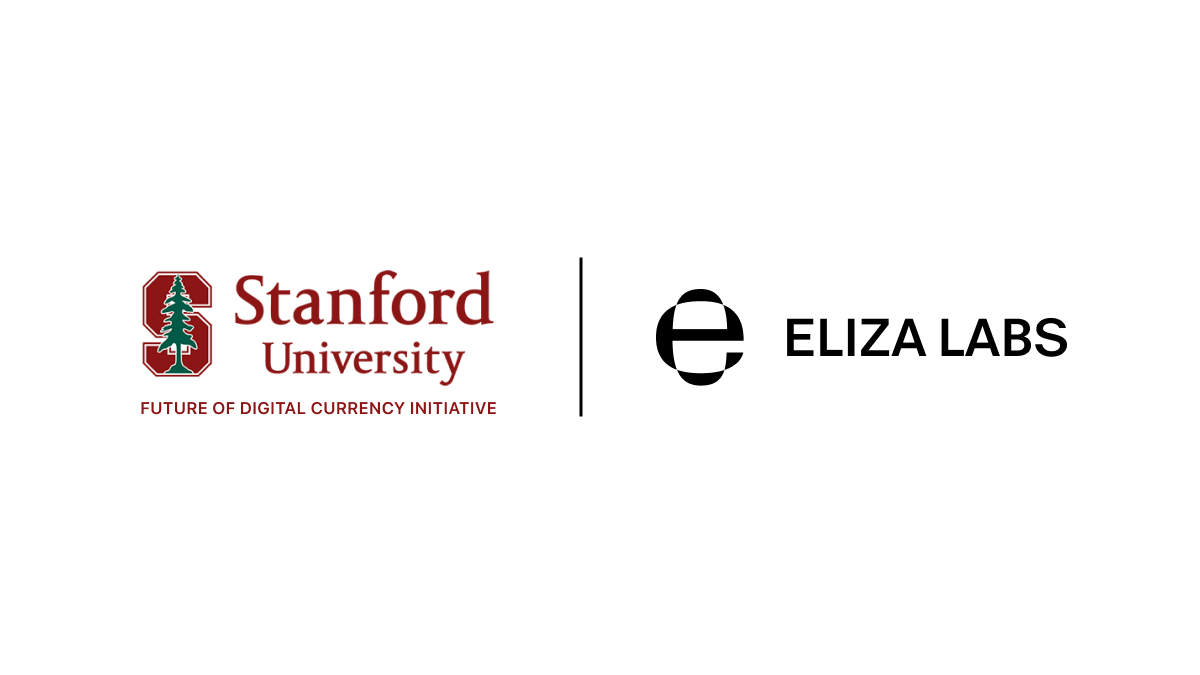Palo Alto, CA, December 16, 2024, Chainwire
This partnership establishes the first AI x Web3 Lab at Stanford University’s Future of Digital Money Initiative.
Stanford University’s Future of Digital Money Initiative (FDCI) and Eliza Labs, creators of the open source Eliza agent framework, today announced a groundbreaking research partnership to explore how autonomous AI agents will transform digital currency systems. The collaboration, which will begin in the first quarter of 2025, combines Stanford’s expertise in digital currency research with Eliza Labs’ cutting-edge capabilities in developing autonomous agents.
Leveraging Eliza Labs’ open source Eliza framework for autonomous agent development, this partnership will address fundamental questions about how AI agents can establish trust, coordinate actions, and make decisions within decentralized financial systems. It will. This research comes at a critical moment as autonomous agents increasingly impact economic systems and financial services, and the Eliza framework provides a proven foundation for developing reliable and scalable agent-based systems.
“This collaboration represents a unique opportunity to shape the way AI agents interact within the digital economy,” said Professors Dan Boneh and David Mazières, who will oversee the research fellowship program. “Combining FDCI’s established infrastructure with Eliza Labs’ multi-agent systems expertise puts us at the forefront of this innovative technology.”
“We are excited to partner with Stanford’s Future of Digital Money Initiative, one of the most prestigious programs for digital currency research, to explore how AI agents can change the future of the financial system,” said Shaw Walters, founder of Eliza Labs. .” “We are combining Stanford’s academic rigor with the widely used Eliza AI agent framework to foster trust and governance in the decentralized economy.”
The research program will take place in three phases throughout 2025, focusing on three key areas:
- Agent trust mechanism: Developing a new framework for how autonomous agents establish and verify trust within digital currency networks, building on Eliza Labs’ existing agent trust architecture
- Multi-agent economic system: Examining how agents interact and coordinate in an economic context
- Decentralized agent governance: Creating a new protocol for managing autonomous agent communities
This initiative will create open source frameworks, simulation platforms, and real-world applications in automated market-making systems and decentralized financial services. Early-stage discoveries and developments are shared through peer-reviewed publications and industry presentations.
The partnership actively seeks selected industry collaborators, who can provide early access to new technologies and participate directly in shaping the direction of research. For venture firms and blockchain infrastructure partners, this means an opportunity to be at the forefront of agent technology development and gain access to emerging technology talent in the field.
Research findings include a new trust framework for autonomous agents, a scalable multi-agent coordination protocol, and a formal model for agent governance in distributed systems. The goal of these developments is to establish basic standards for agent interaction in the digital economy.
Introduction to Eliza Lab
Eliza Labs is at the forefront of developing the next generation of autonomous agent systems. Founded in 2024, Eliza Labs is the creator of the Eliza Agent Framework, an open source platform designed to transform how autonomous AI agents are created, deployed, and managed. The Eliza framework supports powerful multi-agent simulations, enabling developers, researchers, and enterprises to build advanced AI systems.
Eliza Labs is committed to pushing the boundaries of AI technology and shaping the future of intelligent autonomous systems. For more information, please visit https://elizaos.ai.
contact
founder
sarah cohen
SJC PR
press@eliza.systems
Eliza Labs and Stanford University’s FDCI to Explore AI Agents Impact on Digital Currency Systems

